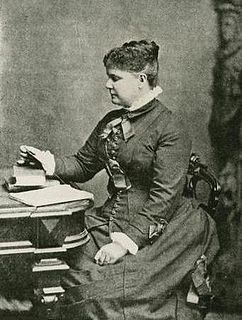A Quote by Plato
There is also a third kind of madness, which is possession by the Muses, enters into a delicate and virgin soul, and there inspiring frenzy, awakens lyric... But he, who, not being inspired and having no touch of madness in his soul, comes to the door and thinks he will get into the temple by the help of art - he, I say, and his poetry are not admitted; the sane man is nowhere at all when he enters into rivalry with the madman.
Related Quotes
Before it incarnates, each soul enters into a sacred contract with the Universe to accomplish certain things. It enters into this commitment in the fullness of its being. Whatever the task that your soul has agreed to, all of the experiences of your life serve to awaken within you the memory of that contract, and to prepare you to fulfill it.
It is God's earth out of which man is taken. From it he has his body. His body belongs to his essential being. Man's body is not his prison, his shell his exterior, but man himself. Man does not "have" a body; he does not "have" a soul; rather he "is" body and soul. Man in the beginning is really his body. He is one. He is his body, as Christ is completely his body, as the Church is the body of Christ
I have heard Shree Rajneesh and have been inspired by his talks. His works are sublimne and seek to liberate the soul of humans. Indeed his presentation is unique, his goal is great and his success in liberating each person from the mafia surrounding the soul is rewarding reading. The message that he had to deliver must reach everywhere. Ultimately salvation comes when one attains freedom from oneself. That, I believe, is the consummation which exposure to Osho may help.
I am interested in madness. I believe it is the biggest thing in the human race, and the most constant. How do you take away from a man his madness without also taking away his identity? Are we sure it is desirable for a man's spirit not to be at war with itself, or that it is better to be serene and ready to go to dinner than to be excited and unwilling to stop for a cup of coffee, even?







































